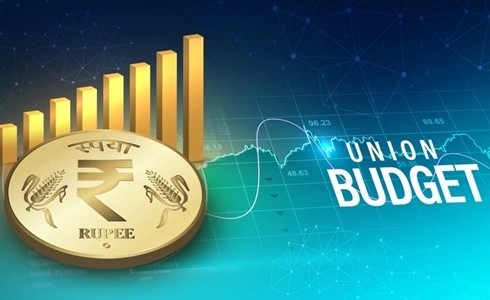Union Budget 2025: PHDCCI’s Call to Abolish Securities Transaction Tax
As the Union Budget 2025 approaches, industry bodies are actively presenting their demands to the Finance Ministry. Among the prominent voices, the PHD Chamber of Commerce and Industry (PHDCCI) has urged Finance Minister Nirmala Sitharaman to remove the Securities Transaction Tax (STT). The request comes amidst broader discussions on enhancing market participation and reducing transaction costs to boost India’s financial markets.
What is Securities Transaction Tax (STT)?

Introduced in 2004, the STT is a tax levied on the purchase or sale of securities listed on recognized stock exchanges in India. Applicable to equities, derivatives, and mutual fund units, the tax aims to ensure revenue collection and transparency in financial transactions. However, critics argue that it increases the overall cost of trading and discourages retail and institutional participation in the markets.
PHDCCI’s Argument
The PHDCCI highlights that the removal of STT could lower transaction costs, attract more investors, and enhance liquidity in the stock markets. It contends that the tax acts as a deterrent for traders, particularly retail investors, who already grapple with multiple levies, including brokerage fees, GST, and stamp duties. By eliminating the STT, the government could create a more conducive environment for market activity and investment growth.
Implications of Removing STT
- Enhanced Market Participation: Lower trading costs could encourage greater participation from retail investors and high-frequency traders, leading to increased volumes and better price discovery.
- Boost to Liquidity: With more players entering the market, liquidity levels could rise, reducing bid-ask spreads and enhancing market efficiency.
- Global Competitiveness: Indian markets could become more attractive to foreign institutional investors (FIIs), who often compare transaction costs across countries before investing.
- Revenue Concerns: Critics of the proposal argue that removing STT might lead to a short-term dip in government revenue. However, proponents believe that increased trading volumes could compensate for this loss through higher capital gains taxes and other indirect revenues.
Historical Context
The STT was introduced as a simpler alternative to the long and complex capital gains tax framework of the early 2000s. Over the years, while the tax has ensured a steady revenue stream for the government, it has faced criticism from various quarters. Market participants have consistently highlighted the need for a more balanced approach that supports revenue collection without stifling market growth.
Current Market Scenario
India’s stock markets have grown significantly, with record participation from retail investors during the past few years. Demat account openings have surged, indicating a robust interest in equities. However, transaction costs remain a point of contention, particularly as India seeks to position itself as a global financial hub.
Way Forward
As the Finance Minister prepares to present the Union Budget on February 1, 2025, the demand to abolish STT adds to a growing list of industry expectations. While the government must carefully evaluate the revenue implications of such a move, the potential benefits to market dynamics and investor sentiment cannot be overlooked.
In conclusion, the decision to retain or remove the Securities Transaction Tax will have far-reaching implications for India’s financial ecosystem. It remains to be seen whether the Finance Ministry aligns with PHDCCI’s recommendations or opts for alternative measures to achieve a balance between revenue generation and market growth.


